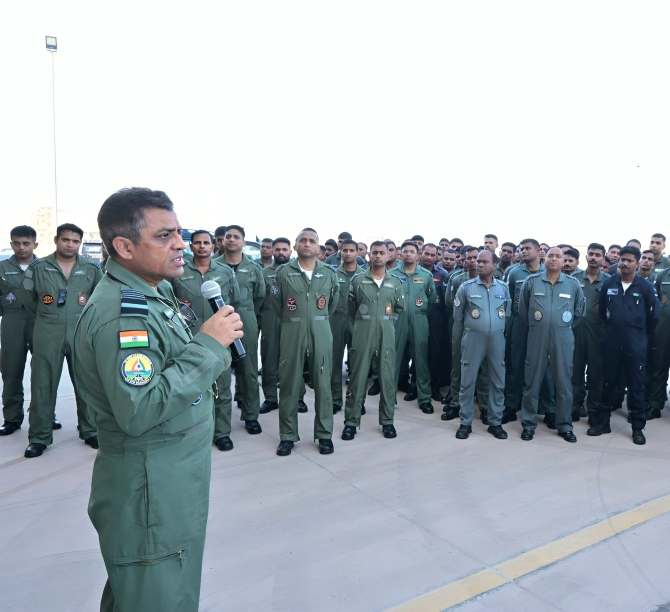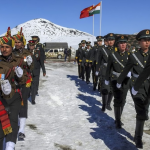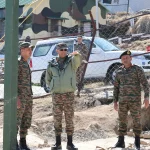Air Marshal Nagesh Kapoor, Air Officer Commanding-in-Chief of the Indian Air Force’s South Western Air Command, conducted a strategic review of Operation Sindoor today during his visit to forward airfields in Gujarat. His inspection comes in the wake of India’s precision military response to the May 3 Pahalgam terror attack, which claimed 13 lives, including that of Navy officer Vinay Narwal.
Operation Sindoor, launched on May 7, was a swift, calculated, and non-escalatory offensive targeting terror infrastructure in Pakistan and Pakistan-occupied Kashmir (PoK). In just 25 minutes, the Indian Air Force neutralized nine high-value terrorist sites linked to groups such as Jaish-e-Mohammad and Lashkar-e-Taiba, including the infamous Markaz Taiba in Muridke, Pakistan — long associated with the 2008 Mumbai attacks.
During his visit, Air Marshal Kapoor held operational briefings and personally interacted with IAF personnel involved in the strike. He commended their precision, bravery, and professionalism in executing one of the most significant cross-border operations in recent years. “The success of Operation Sindoor is a testament to our preparedness, discipline, and evolving air strike capabilities,” he stated.
The operation prominently featured advanced weaponry, including Harop and Harpy loitering drones, which delivered surgical strikes with pinpoint accuracy. Supporting these offensive assets was India’s indigenous Akash Surface-to-Air Missile (SAM) system, deployed at the airfields to secure India’s western airspace. With 96% indigenous content, the Akash system played a critical role in defending against attempted Pakistani retaliatory drone and missile strikes, as confirmed in a May 8 report by India TV.
In parallel, the Russian-origin S-400 air defense system intercepted incoming threats targeting Jammu, Pathankot, and Udhampur, successfully preventing any damage on Indian soil. India Today reported that approximately 100 terrorists were eliminated during the operation, marking a major setback for terror networks across the border.
The political and public response has been overwhelmingly supportive. Defence Minister Rajnath Singh, while inaugurating 50 Border Roads Organisation (BRO) projects on May 8, asserted, “We only killed those who killed our innocents.” Maharashtra Deputy CM Eknath Shinde lauded the IAF’s resolve, declaring, “This is the new India — one that strikes back by entering enemy territory.”
Air Marshal Kapoor’s leadership during this critical period has drawn praise, especially given his extensive experience as a former Defence Attaché to Pakistan. His visit to Gujarat further reinforces the IAF’s operational readiness and strategic depth along India’s western front.
As cross-border shelling continues in volatile sectors like Uri in Jammu & Kashmir — last reported on May 9 — the Indian armed forces remain on high alert. Backed by cutting-edge technology and firm political resolve, India has sent a clear message: acts of terror will not go unanswered.













